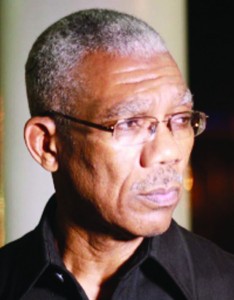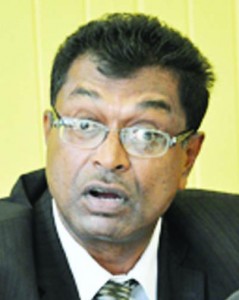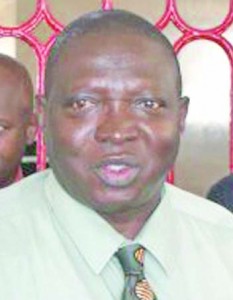

The People’s Progressive Party/ Civic (PPP/ C) has condemned what it called the continued harassment of the Clerk of the National Assembly, Sherlock Isaacs by Opposition Leader, A Partnership for National Unity (APNU) Chairman David Granger and other elements of the opposition.
The PPP/ C said the latest attack on the clerk is yet another manifestation of “their dictatorial tendency”. “It is clear by now that they will use all means possible to forge ahead with their agenda of illegalities.”
Strange
The party said it also found it strange that the Alliance For Change (AFC) through its leader, Khemraj Ramjattan, would accuse the government of not assisting the clerk and in the same vein, acknowledge the fact that the chief parliamentary counsel at the Attorney General’s Chambers has been assisting the clerk.
“The People’s Progressive Party/ Civic has noted the concerns expressed by the clerk himself, Mr Sherlock Isaacs, who has served in the position since 2002, describing this current Parliament as ‘the worst’ during his tenure; following several allegations levelled against him publicly by the opposition leader. This revelation by the clerk is a clear indication that the people’s interest are not being served by the actions of the AFC/ APNU alliance in the National Assembly,” the PPP/ C said in a statement read at its news conference on Monday.

Assembly, Sherlock Isaacs
The party encouraged the clerk to remain strong and continue persevering against the onslaught against his office by the opposition and to continue discharging his mandate in a professional and responsible manner.
Last week, APNU called on Isaacs to fulfil the obligations of his office by sending the four bills to the president for his approval. The clerk had said he had sent the bills to the Attorney General’s Chambers for scrutiny as the Parliament office does not have its own draftsman.
The bills are the Local Government Commission Bill, the Local Government (Amendment) Bill, the Municipal and District Councils (Amendment) Bill, and the Fiscal Transfers Bill.
These bills, APNU said, were passed by the National Assembly and were due to be presented to the president in accordance with the Constitution of the Cooperative Republic of Guyana and the Standing Orders of the National Assembly.
APNU made reference to Article 170 (2) of the Constitution which provides that “when a bill is presented to the president for assent, he shall signify that he assents or that he withholds assent”.
APNU also referred to Article 170(3) which provides: “Where the president withholds his assent to a bill, he shall return it to the Speaker within 21 days of the date when it was presented to him for assent with a message stating the reasons why he has withheld his assent.”
The majority opposition party said it recognised that these articles do not state who has the responsibility for presenting the said bills to the president and that until the president is presented with the bills, the prescribed time cannot be said to have elapsed.
Standing Order
APNU argued that Standing Order 67 prescribes: “Every bill passed by the National Assembly shall remain in the custody of the clerk who shall, subject to Article 164 of the Constitution, at the earliest opportunity, submit the bill to the president for his or her assent”, and the words “shall remain in the custody of the clerk” are mandatory.
It noted that despite the clerk being required to submit the bills for assent “at the earliest opportunity”, that is to say without unnecessary delay, the four bills which were passed on August 7, have not been presented to the president.
Swift response
But, in a swift response, Isaacs said the four bills were submitted to the chief parliamentary counsel to ensure that all of the amendments made by the relevant parliamentary select committee and the National Assembly were inserted.



